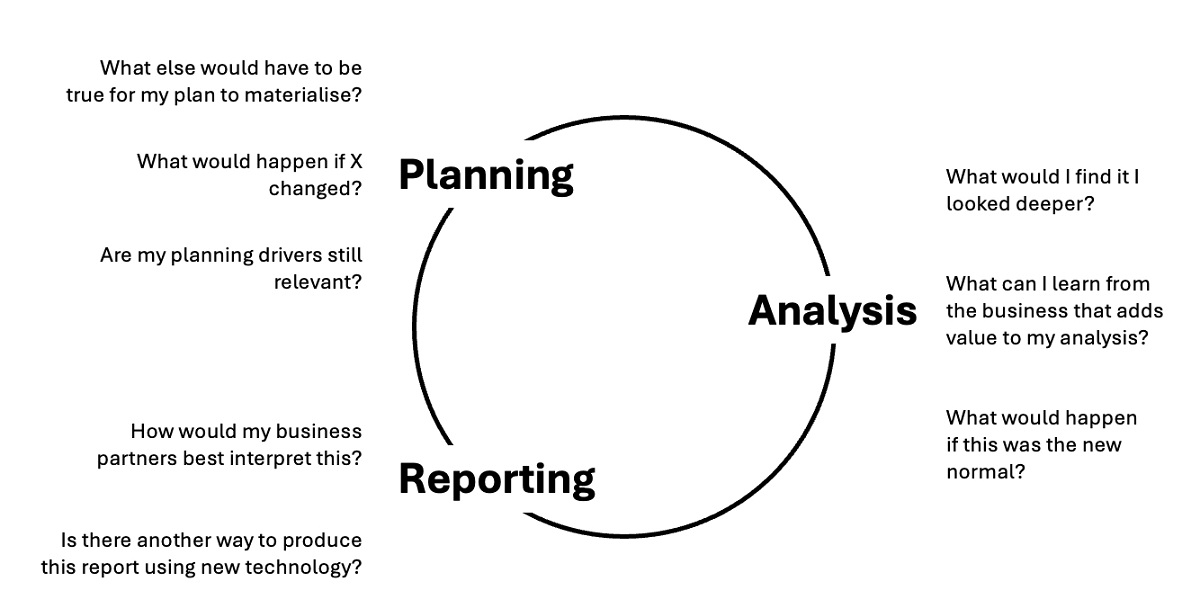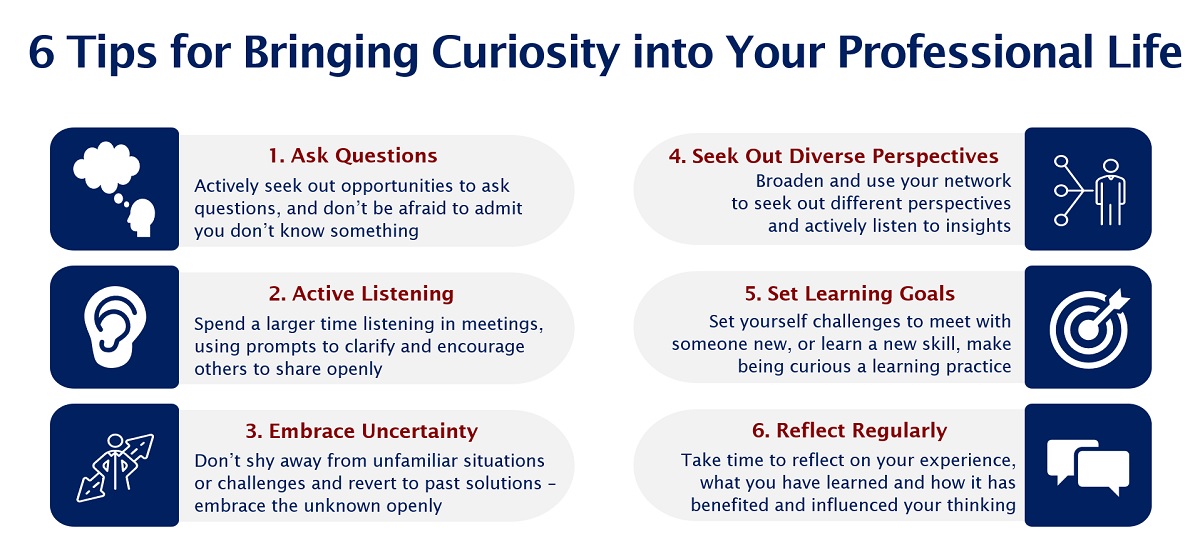This article explores what skills FP&A professionals will need to develop to stay relevant in the...

When was the last time you stopped to ask “why?”. Or wondered, “how does this work?” If you have children, you are no doubt accustomed to being asked life’s biggest questions on a daily basis. However, I wonder if you still approach your professional life with a questioning mindset. In short, are you curious?
Throughout my career, leading diverse teams in a range of businesses and sectors, I have observed first-hand the power of curiosity. This “hidden” soft skill makes the difference between being a great analyst and a great Business Partner. It is the difference between analysing numbers and understanding them. The curious FP&A professional seeks to understand the context of the role they operate in and explores how their business and Business Partners think, operate and see the world they are in. This article explains why curiosity is an indispensable soft skill for FP&A professionals.
How Can Curiosity Benefit the FP&A Professional?
Curiosity drives agility and adaptability
We’ve all heard the stories of the stereotypical finance professionals delivering the same process, year in, year out. “This is the way we’ve always done things,” they say. Curious finance professionals don’t just ask “why”; they also ask “what if?” and remain open to new ideas, emerging trends, and new technologies.
Take, for example, Generative Artificial Intelligence (Gen AI). Even as a nascent technology, Gen AI can have a transformative effect on finance and businesses as a whole. A curious FP&A professional recognises the potentially transformative effects of these technologies, pursuing self-directed learning to improve their skills and then testing, ideating and disrupting long-held beliefs and processes for the benefit of the team and the organisation.
Curiosity as a key to unlock Business Partnering
The modern FP&A professional aspires to be a Business Partner, working closely with diverse teams to bring financial insight, drive strategy and improve decision-making. A curious and open mindset means creating a genuine interest in how different teams operate, what their strategy is and the challenges they face, as well as in building an understanding of what it means to be in their team. This fosters trust, builds strong relationships and strengthens collaboration between FP&A and the business, allowing FP&A to gain a seat at the table to steer decision-making and add value through financial analysis and insights.
Curiosity as an innovation accelerator
“If you always do what you always did, you’ll always get what you always got”, or so the saying goes. In finance, it’s easy to fall into that trap of solving problems from the same playbook, resulting in iterations of the same solutions.
Curiosity is the skill which asks whether there is another way, allowing a finance professional to think outside of the box and look for alternative solutions. FP&A can unlock new perspectives and fresh solutions to existing problems by fostering an environment where curiosity and innovation thrive.
Curiosity as a value generator
A colleague of mine was analysing logistics spending, which is a standard monthly task. One week later, he came to me having analysed the delivery costs to every country we operated in from every regional warehouse with the opening comment, “I was curious if our delivery costs were as efficient as they could be”. As a result, we opened a new regional warehouse, saving more than 50% on delivery costs to several overseas countries.
Curiosity is the soft skill which joins together the techniques of the FP&A analytical toolbox. It is the capacity to ask different questions when faced with data and to dig deeper.
Curiosity to mitigate risk…or pursue opportunities
The curious FP&A professional sees beyond the boundaries of their role, asking bigger questions about the risks and opportunities the business faces. Curiosity encourages a wider frame of view, looking not just at obvious opportunities or traditional risks but at a broader range of possibilities.
During the COVID-19 pandemic, many FP&A professionals were forced to assess a risk that few expected. Those who had fostered a spirit of curiosity already had the mindset and the framework to approach the new reality, analysing scenarios, testing assumptions and generating ideas. Previously, several B2B companies had to pivot quickly to direct-to-consumer models, while their curious FP&A teams provided valuable analysis, scenario modelling and strategic support to overcome business disruption.
How Curiosity Is Embedded in the Daily FP&A Practice
To emphasise how curiosity is so closely aligned with the life of an FP&A professional, I like to use the three-part lens of Planning - Analysis - Reporting as the core of an FP&A role. In the diagram below, I propose questions that the curious FP&A professional may ask in each of these focus areas.

Figure 1: Questions That a Curious FP&A Professional May Ask
This list barely scratches the surface of what an FP&A professional can and, indeed, should be asking when approaching their role with a curious mindset. Curiosity in FP&A and understanding the reasons behind each task, the business and the teams we partner with elevate the value of what an FP&A team brings to the company. Curiosity unites our passion for analytics and our mission to steer decision-making with our insight.
“I Have No Special Talent, I Am Only Passionately Curious”
This quote is famously attributed to none other than Albert Einstein. While we may not reach the levels of his insight, although we can always remain hopeful, we can instead reach a higher level of curiosity. The diagram below outlines six tips for bringing curiosity into your professional life and sharpening this key skill.

Figure 2
Curiosity - the Soft Skill That Opens Doors
In summary, curiosity is a hidden superpower for an FP&A professional. It is a soft skill that unlocks the door to Business Partnering, where a curious, inquisitive mindset becomes more deeply embedded in the business, building relationships and fostering trust. It is a questioning mindset that allows us to dig deeper, find innovative solutions and embrace new technologies and practices as opportunities to improve and add value.
Not only is curiosity a valuable asset to the individual, but it is also an imperative for FP&A professionals. Being curious lies behind the core of our work. It is the ability to ask “what if?” in Scenario Analysis, challenge how to craft a narrative around financial reporting that speaks to business teams and not take things at first value. A curious FP&A function is a core strategic asset to any business, steering decisions and providing insight to leaders.
I’m curious to know - what does curiosity mean to you?
Subscribe to
FP&A Trends Digest

We will regularly update you on the latest trends and developments in FP&A. Take the opportunity to have articles written by finance thought leaders delivered directly to your inbox; watch compelling webinars; connect with like-minded professionals; and become a part of our global community.







